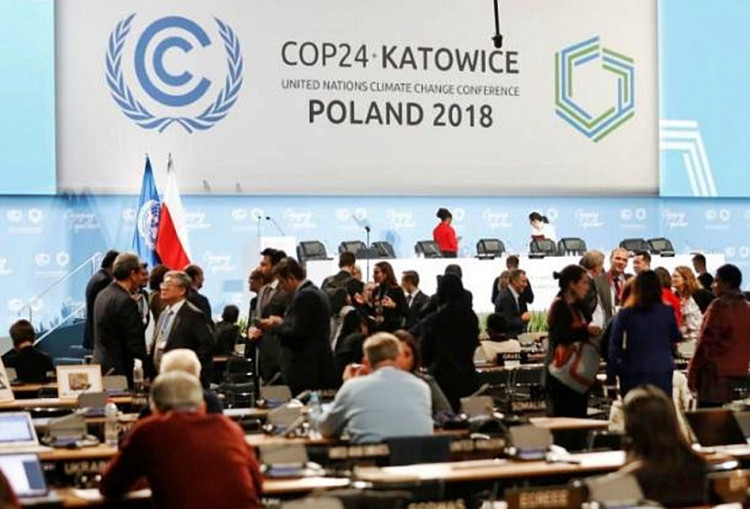As the 28th Conference of the Parties (COP28) to the United Nations Framework Convention on Climate Change approaches, the oil and natural gas industry is once again under the spotlight. The U.S. Presidential Climate Envoy, John Kerry, indicated during an interview in Abu Dhabi on October 31 that fossil fuel companies must be held accountable for excessive carbon dioxide emissions contributing to climate issues.
Since 1995, the UN Climate Change Conference has convened annually. Due to the COVID-19 pandemic, COP26, initially scheduled for April 2020, was postponed to October 2021. Each year, numerous leaders, experts, business representatives, and activists gather to discuss actions to address climate change.
This year's conference, set to take place from November 30 to December 12 in Dubai, UAE, is expected to host over 140 heads of state and senior government officials. COP28 aims to build upon and deepen the theme of "collective implementation" from the previous session, offering nations a pivotal opportunity to accelerate actions against the climate crisis. Apart from assessing the progress of the Paris Agreement, the conference will outline action plans for significant emission reductions, including cutting the production of fossil fuels like oil, natural gas, and coal, enhancing renewable energy generation capacity, and increasing investments in climate-related topics.
One of the long-term goals of the Paris Agreement, implemented in 2016, is to substantially reduce greenhouse gas emissions, aiming to limit global warming to 1.5°C by the end of this century. Surpassing this threshold could lead to more severe climate issues, including frequent and intense droughts, heatwaves, and rainfall. However, the International Energy Agency warns that current national climate policies are insufficient to keep the rise within 1.5°C.
Extreme weather events seem to be becoming the norm. The European Copernicus Climate Change Service predicts that 2023 could be the hottest year on record, with temperatures 1.4°C above pre-industrial averages. The urgency for climate action has never felt more pressing.
At the recently concluded COP28 preparatory meeting, Director-General Majid Al Suwaidi emphasized that the COP28 chair would address the impacts of climate change with a proactive attitude, turning them into opportunities for economic and social growth. Francesco La Camera, Director-General of the International Renewable Energy Agency, urged nations to urgently address systemic barriers in infrastructure, policy, and institutional capacity related to fossil fuels. An industry coalition representing 131 companies aggressively called for governments to cease fossil fuel use and expand clean energy production before COP28.
China's Deputy Minister of Ecology and Environment, Zhao Yingmin, outlined the country's positions and propositions on key topics during the preparatory meeting. Stakeholders should leverage the first global stocktake during COP28, focusing on practical actions, enhancing solidarity and cooperation, and promoting a fair green transition, in line with the goals, principles, and arrangements of the UN Climate Change Framework and the Paris Agreement.
For resource-rich countries that produce vast amounts of oil and natural gas, there's a preference for enhancing carbon dioxide emission control technologies rather than directly restricting fossil fuel use. Some EU nations believe that merely expanding clean energy isn't enough; addressing the root causes of the climate issue is essential. Thus, COP28 will not only advocate for renewable energy use but also seek agreements on phasing out carbon-intensive fossil fuels.
Reaching an agreement among the nearly 200 countries attending COP28 won't be easy. Sweden's Climate State Secretary, Daniel Westerlund, noted that while the ultimate goal is to phase out fossil fuels, the involvement of these companies is crucial in addressing the current climate crisis.
COP28 host UAE, along with two global renewable energy organizations, released a report urging governments to double energy efficiency and renewable energy generation by 2030.
According to Reuters, U.S. President Joe Biden, representing the country with the highest cumulative carbon emissions, might not attend the conference. Last year, Biden announced his participation in COP27 just two weeks prior, where he highlighted climate-related provisions in the U.S. "Reduce Inflation Act." This legislation proposes $368 billion to support clean energy sectors, aiming to reduce U.S. emissions by 1 billion tons by 2030.
U.S. energy expenditures have remained high. In 2021, they exceeded $1.3 trillion, a 25% increase from 2020. Oil products accounted for the largest share (57%) of U.S. energy spending in 2021, with expenditures on gasoline, diesel, and jet fuel reaching $757 billion, a 44% increase from 2020.
Significant investments have yielded optimistic results for U.S. greenhouse gas emission reductions. According to a report by the U.S. Environmental Protection Agency in October, greenhouse gas emissions from large industrial sources in the U.S. decreased by about 1% in 2022 compared to 2021. This reduction is primarily due to thousands of major greenhouse gas-emitting industrial sources in the U.S. cutting their emissions in 2022.






